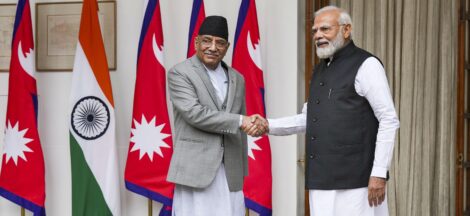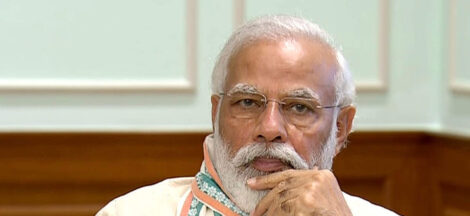By Marcus Barnett
Max Levitas was a towering figure of Britain’s labor movement. A hardened enemy of the Blackshirts in the years before World War II, the Irish-Jewish communist devoted nearly a century to fighting injustice. With the death of Max Levitas, who passed away on Friday, November 2 at the age of 103, Britain has lost one of its most beloved Communist figures. An adopted son of London, and the East End particularly, Max was a towering figure in his local community, widely respected for his staunch advocacy of working people against racism and oppression.
With his passing, the broader labor movement has also lost one of its last remaining links to the heroic struggles against fascism, mass unemployment, and treacherous living conditions waged by millions of ordinary people in the 1930s. Max was a prominent working-class militant who played a central role in many of London’s great labor upheavals over the course of many decades. Even after his sad passing, his lifelong commitment to the cause of labor is an outstanding example for future generations.
Max’s first years were marked by Ireland’s fight for freedom. As a baby he survived the Easter Rising of 1916, which was centrally organized by the socialist republican James Connolly, a one-time local council candidate who had printed election leaflets in Yiddish. Max later recalled how during the War of Independence his mother attempted to shield him and his siblings from the bullets sprayed into houses by the Black and Tans (British auxiliary units) by putting cushions on the windows.
His father Harry, who had been a comrade of Connolly’s, was a tailor by trade, and his activity in the International Pressers and Machinists Union (known locally as the “Jewish Union”) brought him into perpetual war with Dublin’s sweatshop bosses. Once Harry had been blacklisted by practically all of the Irish capital’s garment employers, the Levitas family moved to Glasgow, and then on to Stepney in the heart of London’s East End.
After beginning work as a tailor in 1929, Max threw himself headfirst into the labor movement, joining the Young Communist League (YCL). After running afoul of police on several demonstrations, he eventually found himself in real trouble in 1934 when, at the age of nineteen, he was arrested for painting antifascist slogans on Nelson’s Column in Trafalgar Square. Accompanied by fellow YCL member Jack Clifford, Max climbed onto the column to daub the slogans: “All out on September 9th to fight fascism,” “down with fascism,” and “fight fascism.”
His spirit of purpose reflected an increasing desperation in the socialist movement of this period. From Berlin to Vienna and Paris, the international situation was bleak for the Left, and Communists in Britain were determined to take to the offensive. In June 1934, Communists disrupting a BUF meeting in Olympia, London were brutally beaten by fascist stewards, prompting even Conservative MPs like Geoffrey Lloyd to express their revulsion at the display of fascist violence.
Having learned the lessons of Olympia, the Communist movement then delivered a victory for antifascism at Hyde Park. To quote a Daily Worker headline, the more than one hundred thousand antifascists were successful in “drowning the Blackshirts in a sea of working class activity.” This event dampened the enthusiasm of Oswald Mosley’s men, who became increasingly wary of holding rallies in working-class cities.
As the branch secretary of the YCL in the Mile End area of Stepney, Max was already a young but well-known veteran of a growing movement. Indeed, he was even the recipient of a name-check by Mosley himself, dripping in antisemitic innuendo:
The growing tensions between fascists and antifascists reached new heights when the BUF announced they would be marching through the East End on October 4, 1936. The idea was that Mosley would march from Tower Hill, where he could strut provocatively against the “rats and vermin from the gutter of Whitechapel.” At the time, Max was working as a tailor’s presser on bustling Commercial Street. Upon hearing of the march, he thought that “if they did march, there would be deaths, because the people around here have had enough.”
Trade unions, mutual aid groups, and the Communist-initiated Jewish People’s Council Against Fascism and Anti-Semitism sprang into action, rapidly collecting a petition of one hundred thousand names calling on the home secretary, John Simon, to ban the march. Simon refused, and the labor movement and Jewish community began a fierce campaign of holding street meetings, knocking on doors, chalking slogans on walls, and spreading the word across the factories to urge people — “all out on October 4th!”
On the morning of the fourth, several thousand fascists assembled in Royal Mint Street, awaiting their leader. Half a mile away, countless East Enders jammed the area around Gardiner’s Corner. Police attempts to knock back the crowds to make room for the Blackshirts were fruitless, and the throng fought back.
The situation quickly escalated, with workers ripping up cobbles from the streets; a Communist tram driver even abandoned his vehicle so it could be used as a barricade. When an antifascist infiltrator into the Blackshirts tipped off Communist organizer Phil Piratin that Mosley was heading down Cable Street, he dispatched loudspeaker vans to tell people to head to the barricades that had already been built there. When it became clear that the police were in no position to fight the armed masses standing behind the barricades along Cable Street, the Blackshirts were escorted three miles away to Embankment and ordered to disperse. The march was abandoned.
Max, however, had thrown himself into organizing the burgeoning tenement movement in East London. In the mid-1930s, acts of protest by tenants refusing to pay rent became a sporadic occurrence in the squalid tenements of Stepney, and local Communists saw the potential in uniting the informal networks that were created in these struggles.
In autumn 1937, the Stepney Tenant’s Defence League was founded in a room in the Paragon Mansions tenement block, and immediately began directing efforts to create mass collective resistance to slum landlordism. Soon, the League had 7,500 members and had spread a rash of rent strikes across Stepney’s slum dwellings.
In February 1939, Max was a convener in a particularly confrontational rent strike when the landlords of the Langdale and Brady Street Mansions, where Max lived, sought to increase the rent. In response, tenants threw up barricades, piling lumber on the staircases, and put up a defiant notice that said: “the landlord shall not pass.”
The two buildings were effectively in a state of siege. On their way to and from school, children were hoisted up and down to their flats by their parents on ropes, and even milkmen had to secure league “permits” before they could deliver at the buildings.
In 1945, Max was among the ten Communists who caused a sensation when they were elected as councilors in Stepney. He was voted into office thanks to his proven track record fighting injustice. The Communist organizer and “Red Commander” of Cable Street, Phil Piratin, was also elected to parliament on a Communist ticket, cementing Stepney as a radical bastion. Even during the Cold War, many Communist councilors in Stepney continued to be reelected out of the local community’s gratitude for their personal dedication to the area and its residents; Max himself continued serving on the council until the sixties.
As Max became something of a national treasure, he never sought to hide the political tradition he emerged from. When the English Defence League attempted to march through the East End in 2013 in a clear attempt to launch an anti-Muslim pogrom, Max told the crowd how seeing thousands of young Bengalis turning out to hold the streets from the far right reminded him of his own youth. He urged them to maintain their strength against not only the far right but the incumbent Conservative-Liberal government, saying (to huge cheers): “Yes, I am a Communist. I stand for the Communist movement and for socialism in this country.”
Over a century since it began, Max Levitas’s long struggle is over. The system he fought against limps on — but the fight against that system, in this country at least, is stronger than ever. Max’s last conversation reportedly concerned the national antiracist demonstration that will take place in London later this month — a march that his old friends in Labour’s current leadership will likely attend. So it seems appropriate to echo the parting words that Max made to the young, working-class Bengali antifascists he stood alongside against the English Defence League in 2013 — words that summarized his spirit of encouragement and socialist optimism: “Good luck to you all — and good luck to the working class in the struggle.” (IPA Service)
Courtesy: Jacobin
The post Max Levitas’s Death Is A Big Loss To British Labour Movement appeared first on Newspack by India Press Agency.


